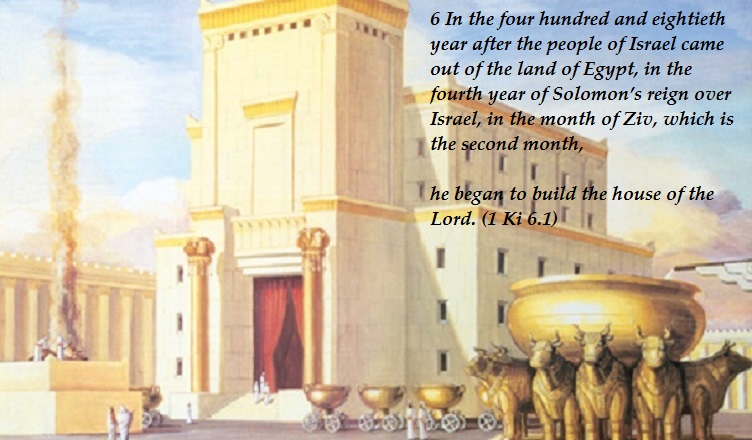And Jephthah made a vow to the Lord: “If you give the Ammonites into my hands, 31 whatever comes out of the door of my house to meet me when I return in triumph from the Ammonites will be the Lord’s, and I will sacrifice it as a burnt offering.” - Judges 11: 30, 31
As the wealthy oil tycoon lay on his death bed, his pastor talked of God’s healing power. “Pastor.” he gasped, “if God heals me, I will give the church a million dollars. Miraculously, the man got revived. When we come to God like the rich young ruler in Matthew 19:16-22. we are faced with the things we have to give up for the sake of God. Wealth, we have built by our strength, by theft, by lies as Habakkuk 2: 18 – 20 says:
“Of what value is an idol carved by a craftsman?
Or an image that teaches lies?
For the one who makes it trusts in his own creation;
he makes idols that cannot speak.
19 Woe to him who says to wood, ‘Come to life!’
Or to lifeless stone, ‘Wake up!’
Can it give guidance?
It is covered with gold and silver.
there is no breath in it.”
20 The Lord is in his holy temple.
let all the earth be silent before him.
So, when we raise idols built by our hands i.e. mammoth, that teaches us to lie to gain wealth, we will seek guidance from inmate things because it builds your image (how you see yourself) BECAUSE your trust is in its creation (man, man’s voice and what man creates). When we build idols from ourselves, from things other than Gods hands it will lead or guide us to sin through pride. Hence the scripture, if the lord doesn’t build a house the laborers labor in vain. Psalm 127: 1. Everyman has a builder (God, himself or other things) and he builds based on what builds him. If wealth builds you, you will build others by wealth.
For every house is built by someone, but God is the builder of everything. 5 “Moses was faithful as a servant in all God’s house,”[a] bearing witness to what would be spoken by God in the future. 6 But Christ is faithful as the Son over God’s house. And we are his house, if indeed we hold firmly to our confidence and the hope in which we glory. Hebrews 3:4-6
Jesus came and saw the temple made/built with precious stones, he said I will tear down this building and in 3 days I will rebuild it. Do you have buildings you have to tear down. So, the lord will rebuild you. John 2:19, Do precious stones build you, does bloodshed build you, Habakkuk 2: 12, Nehemiah was a rebuilder of walls and Jerusalem. Who build you, is it what builds your city? or is it the cornerstone that was rejected that build you, or will you say like the men in Genesis 11: 4 Come, let us build for ourselves a city, and a tower whose top will reach into heaven, and let us make for ourselves a name, otherwise we will be scattered abroad over the face of the whole earth. What builds you creates your image; would you destroy the image that speaks lies and ask God to rebuild you?

Sometimes, people hide their broken images behind precious stones, some money, some lies and others Jesus.
Back to the story, Miraculously, the man who was revived as some believers when they fall out of sin, was out of the hospital. One day, several month later, he and the pastor chatted on the sidewalk in front of a hardware store. “You know,” the Pastor said, “when you were in the hospital dying, you promised to give the church a million dollars if you got well. We haven’t got it yet. “Did I say that?” the tycoon asked. “I guess that goes to show how sick I really was!”.
In our passage, we are confronted with the story of Jephthah, who vowed that if he defeated the Ammonites, he would sacrifice the first thing that came out of his house to God when he returned home. His daughter, who was his only child, was the one who greeted him on his return. This was highly regrettable to Jephthah, as his only daughter remained unmarried and knew no man till her death.
Today, there are many people who in the heat of emotion or personal challenges have made hasty promises to God, which they later found difficult to fulfill. However, once they get what they want, they forget or pile up excuses why they would not be able to keep their vows.
It is instructive to note that though the vow was difficult for Jephthah, but as a man of integrity, he fulfilled his vow. God is them. We must not make rows we find difficult to keep (Deuteronomy 23: 21; Ecclesiastics 5: 4). Always be thoughtful and patient before you open your mouth before the Lord. Avoid making rash vows based on emotions.
We are only as Good as our words and our words are to be built in God. So, our builder can build us.
Matthew 7:24-29, Psalm 9, Psalm 13-18: So, today I ask as with Galatians 1 who builds you? whose voice do you hear? where do Gods word ring when in doubt, worry and fear creeps in? See more scriptures relating to building here: 15 Bible verses about Builders (knowing-jesus.com)


